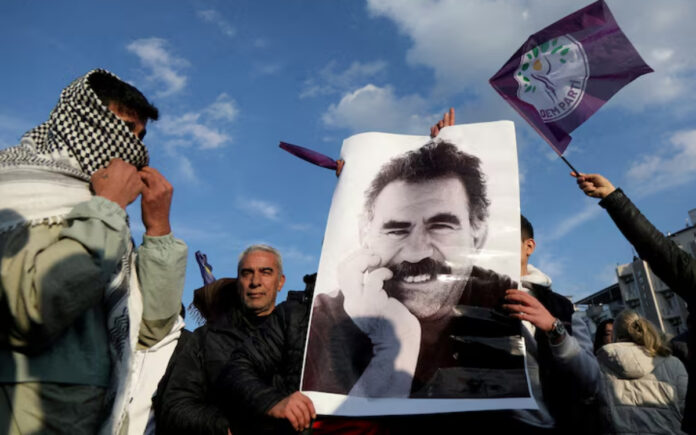Istanbul: The Kurdistan Workers Party (PKK), a Kurdish militant group engaged in a protracted and deadly insurgency against the Turkish state for over 40 years, has decided to disband and end its armed operations, according to a report by Firat News Agency, which is affiliated with the group.
The PKK’s decision marks a historic turning point in Turkey’s internal conflict and could significantly enhance political and economic stability in the region. Analysts also believe it could ease tensions across neighboring Iraq and Syria, where Kurdish forces remain active, particularly in U.S.-backed operations.
Founded in 1978, the PKK began its armed struggle in 1984. Since then, the conflict has claimed over 40,000 lives, caused deep social divisions, and strained the Turkish economy. Turkey, the United States, and the European Union classify the PKK as a terrorist organization.
In a declaration issued following the PKK’s 12th Congress, held last week in northern Iraq—where the group maintains a significant presence—the organization announced, “The PKK 12th Congress decided to dissolve the PKK’s organizational structure… and end the armed struggle.”
This strategic shift follows a public call made in February by imprisoned PKK leader Abdullah Ocalan, who has been serving a life sentence on İmralı Island since 1999. According to the group, Ocalan will oversee the transition process, though there has been no official comment from Ankara on whether it would accept his continued involvement. Turkish public opinion polls suggest such a move could face domestic resistance.
The practical implementation of the disbandment remains unclear, particularly concerning the disarmament process and what the dissolution entails for the PKK’s armed units and political branches.
It also raises questions about the potential impact on the Kurdish People’s Protection Units (YPG) in Syria, which Ankara considers a PKK affiliate. The YPG, which leads a key U.S.-backed coalition against the Islamic State, has previously distanced itself from Ocalan’s directives, stating that such calls do not pertain to them.
In the PKK’s official statement, it emphasized, “The PKK has completed its historic mission… The PKK struggle has broken the policy of denial and annihilation of our people and brought the Kurdish issue to a point of solving it through democratic politics.”
Also Read | CATL’s $4 Billion Hong Kong IPO Sets Global Record for 2025
The announcement provides a critical opportunity for Turkish President Tayyip Erdoğan to push forward with development projects in Turkey’s largely Kurdish southeast. Decades of conflict have stunted the region’s growth, and many hope this decision can lead to sustained peace and prosperity.
Tayip Temel, a deputy leader of the pro-Kurdish DEM Party—the third-largest political party in Turkey—told Reuters that the PKK’s decision holds major regional significance. “It will also necessitate a major shift in the official state mentality of Turkey,” he said.
In Diyarbakir, the de facto capital of Turkey’s Kurdish population, residents cautiously welcomed the news. “It is really important that people do not die anymore, that the Kurdish problem is solved in a more democratic structure,” said Hasan Huseyin Ceylan, 45. “[This is] very important for both Kurdish and Turkish people.”
Also Read | BLA Urges India to Act, Offers Support in Offensive Against Pakistan
Omer Celik, spokesperson for Erdoğan’s ruling AK Party, responded positively, saying the PKK’s dissolution was “an important step toward a terror-free Turkey.”
Although the Turkish foreign ministry has not issued an official statement, the decision had reportedly been anticipated by Ankara. Financial markets reacted modestly, with the Turkish lira remaining stable at 38.765 per dollar and the main share index rising by 3%.
Turkey has made several attempts at negotiating peace over the years, most notably the 2013–2015 ceasefire, which ultimately collapsed. Whether this latest development will yield lasting change depends on both political will and the execution of the disbandment process in the coming months.



